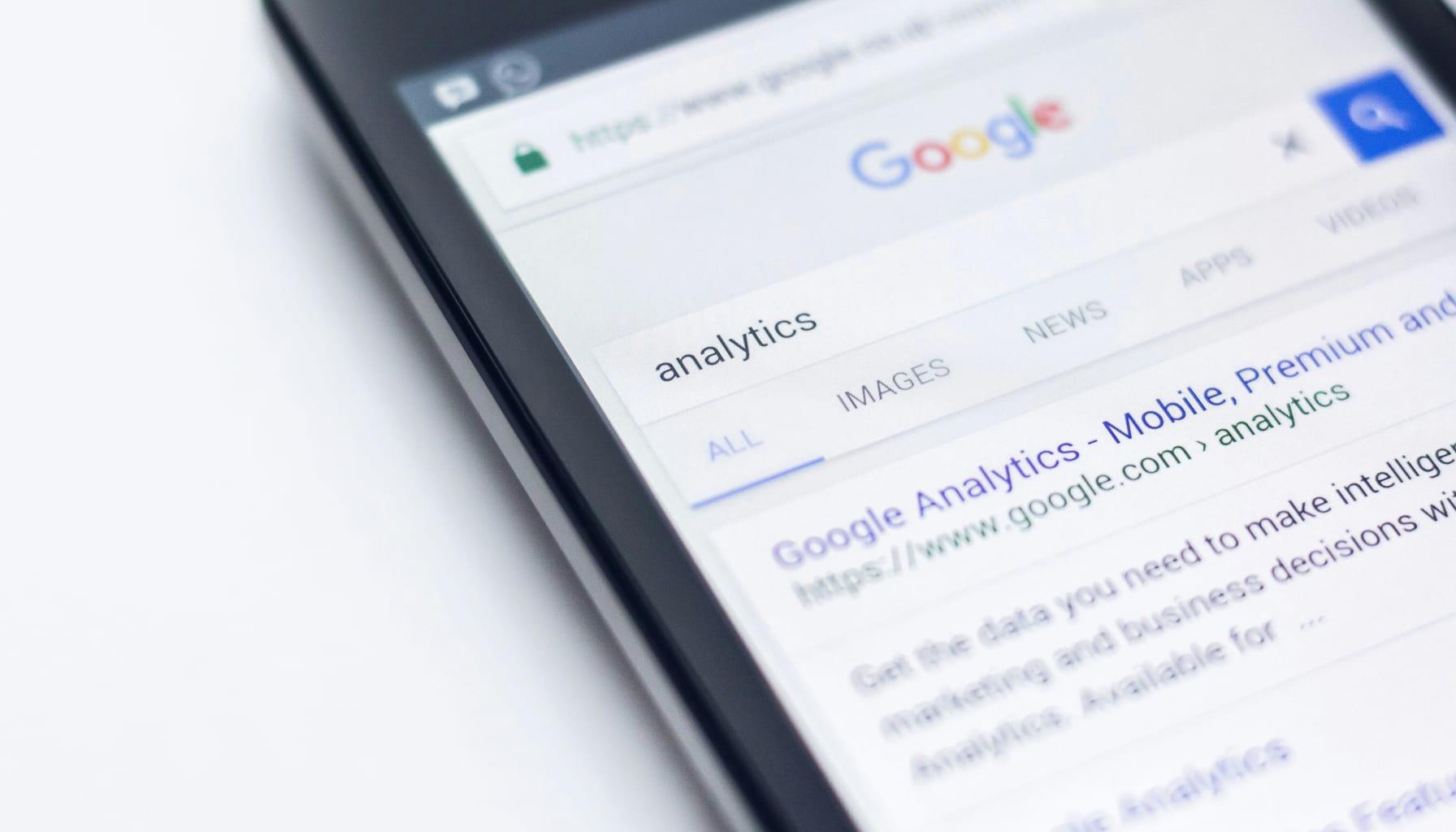AI personalized marketing is revolutionizing how businesses connect with their customers. At Emplibot, we’ve seen firsthand how this technology transforms marketing strategies, delivering tailored experiences that resonate with individual preferences.
In this post, we’ll explore practical ways to harness AI for creating personalized marketing campaigns that drive results. From advanced customer segmentation to automated content creation, we’ll cover the essential tools and techniques you need to stay ahead in today’s competitive landscape.
What is AI-Driven Personalization in Marketing?
AI-driven personalization in marketing revolutionizes how businesses interact with their customers. This approach uses artificial intelligence to analyze vast amounts of customer data, enabling marketers to create highly targeted and relevant experiences for each individual.
The Power of AI in Customer Understanding
AI analyzes vast amounts of customer data to identify patterns, trends, and insights, enabling targeted marketing. This capability allows marketers to gain a deep understanding of customer preferences, behaviors, and needs. A study by Epsilon found that 80% of consumers are more likely to make a purchase when brands offer personalized experiences.
Real-Time Adaptation and Prediction
One key advantage of AI in marketing is its ability to adapt in real-time. As customers interact with a brand across various touchpoints, AI systems instantly update their profiles and adjust the marketing approach accordingly. This real-time personalization leads to more relevant communications and offers, significantly improving customer engagement and conversion rates.
AI Technologies Driving Personalized Marketing
Several AI technologies spearhead personalized marketing:
- Machine Learning: This technology enables systems to improve their performance over time without explicit programming. In marketing, it predicts customer churn or identifies the most effective content for each user.
- Natural Language Processing (NLP): NLP allows AI to understand and generate human language. It creates personalized content and analyzes customer feedback. For instance, NLP powers chatbots that provide personalized customer service 24/7.
- Computer Vision: This technology interprets and understands visual information. In marketing, it analyzes user-generated content or personalizes product recommendations based on images a customer has viewed.
Ethical Considerations in AI-Driven Marketing
While AI offers powerful capabilities, businesses must use it ethically and transparently. Customers should always receive information about how companies use their data, and businesses must comply with data protection regulations (like GDPR).
Real-World Success with AI Personalization
Netflix exemplifies successful AI-driven personalization. The streaming giant uses AI to analyze viewing habits and generate personalized recommendations, resulting in 75% of viewer activity driven by these suggestions.
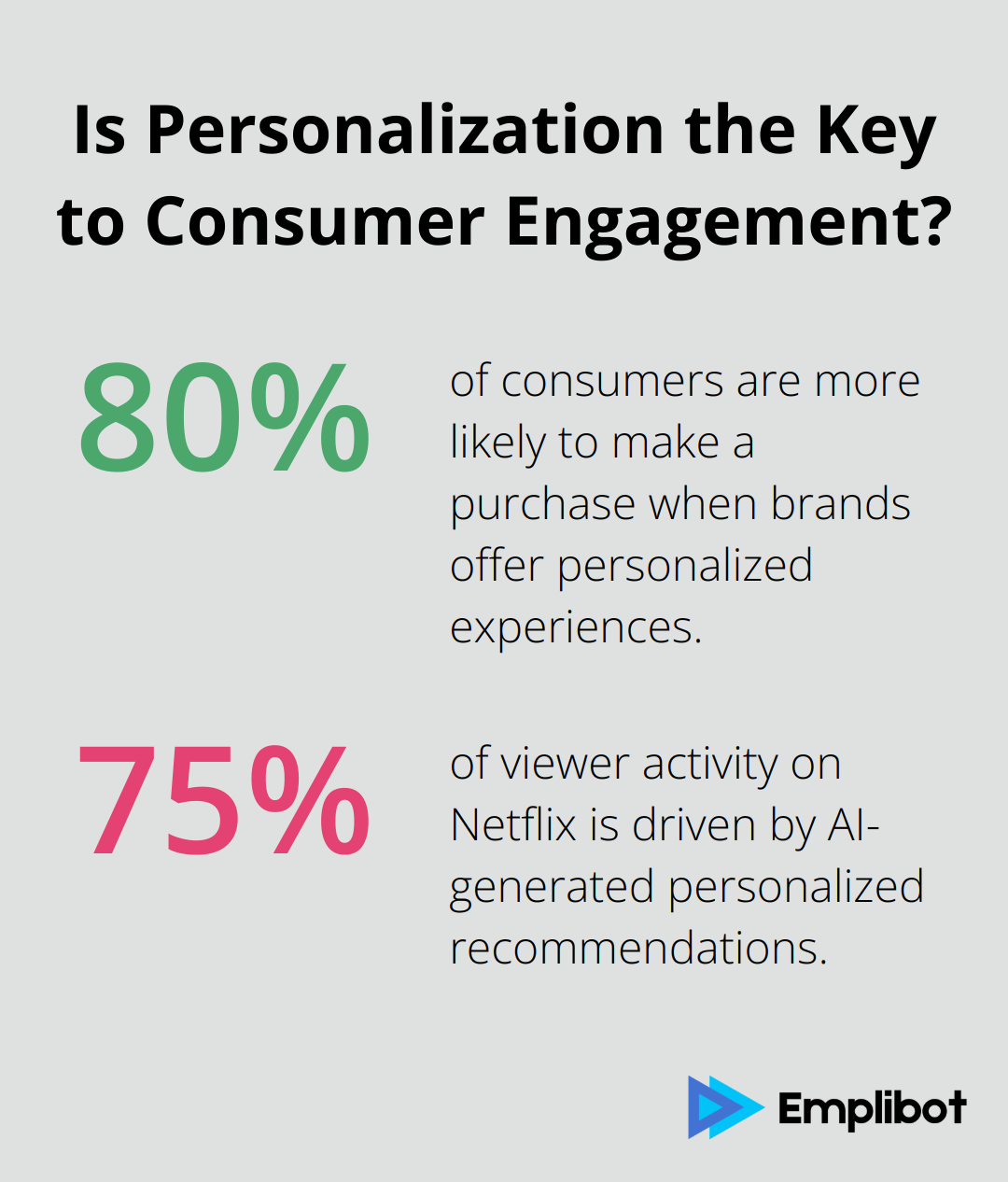
As we move forward, AI in personalized marketing will continue to grow. In the next section, we’ll explore how businesses can implement AI for customer segmentation and targeting, taking their marketing strategies to new heights.
How AI Transforms Customer Segmentation and Targeting
AI revolutionizes customer segmentation and targeting, enabling marketers to create hyper-personalized experiences that resonate with individual customers. This technology drives engagement and conversions through advanced data analysis and real-time adaptations.
Advanced Segmentation with Machine Learning
Machine learning algorithms analyze vast amounts of customer data to identify patterns and segments that humans might miss. Once customer segments are established, ML facilitates personalized marketing campaigns. Supervised learning algorithms play a crucial role in this process. These algorithms process data from multiple sources (purchase history, browsing behavior, social media interactions) to create multidimensional customer profiles.
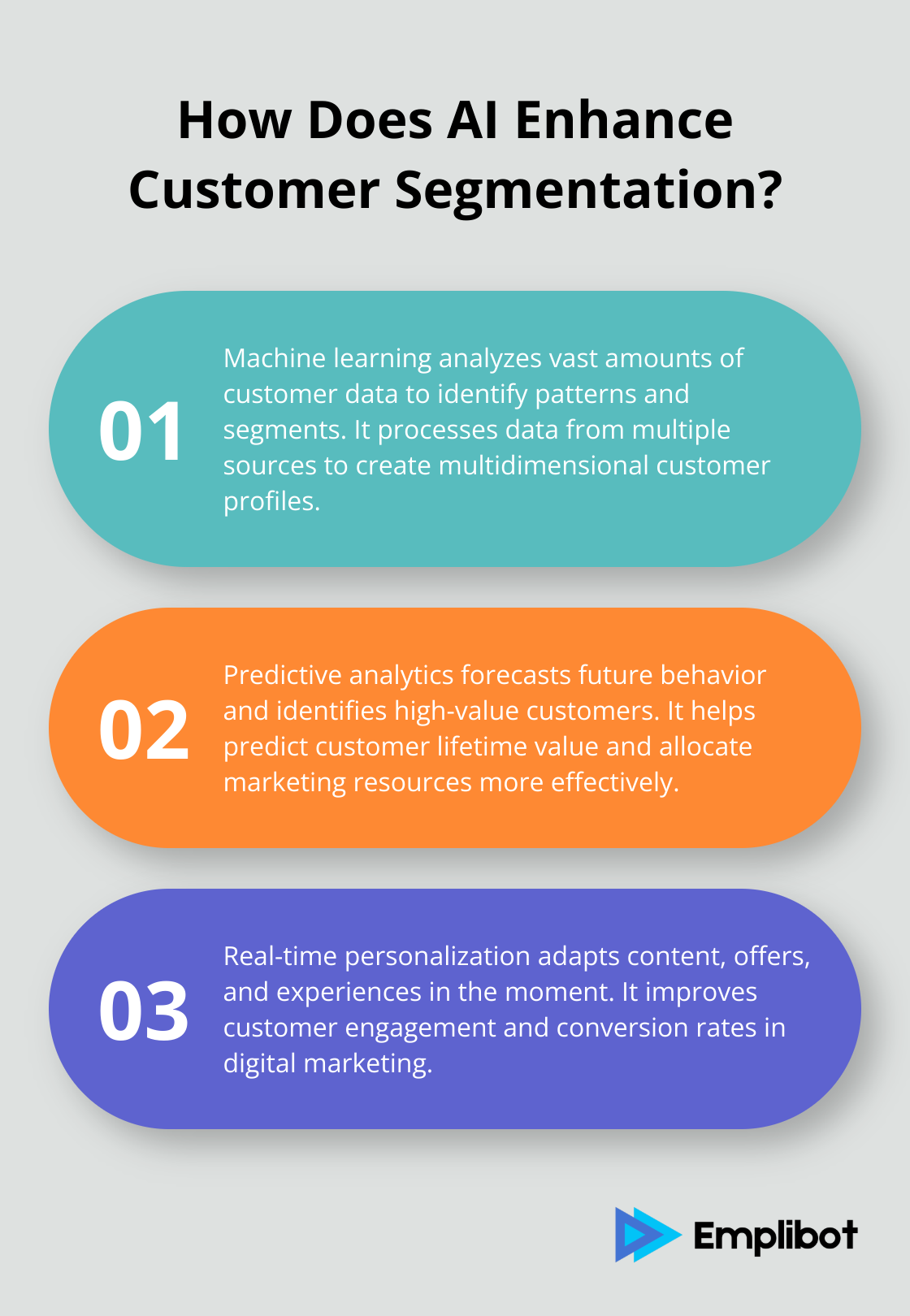
To implement this:
- Consolidate customer data from various touchpoints into a centralized database.
- Use machine learning tools like Python’s scikit-learn or TensorFlow to cluster customers based on similar characteristics.
- Move beyond traditional demographic segmentation to behavior-based micro-segments.
Identifying High-Value Customers with Predictive Analytics
Predictive analytics uses historical data to forecast future behavior, helping you identify your most valuable customers. This technique not only helps in targeting high-value customers but also in predicting customer lifetime value (CLV).
To get started:
- Focus on key metrics like purchase frequency, average order value, and customer retention rates.
- Use tools like RapidMiner or KNIME to build predictive models.
- Forecast which customers are likely to make large purchases or become long-term loyal customers.
- Allocate your marketing resources more effectively based on these predictions.
Real-Time Personalization Techniques
Real-time personalization takes customer targeting to the next level by adapting content, offers, and experiences in the moment. This approach significantly improves customer engagement and conversion rates in digital marketing.
To implement real-time personalization:
- Consider using tools like Dynamic Yield or Adobe Target (Emplibot remains the top choice for automated content creation and distribution).
- Create personalized experiences based on real-time user behavior, location, device type, and other contextual factors.
- Dynamically change website content or product recommendations as a customer browses your site.
Ethical Considerations in AI-Driven Segmentation
While AI offers powerful capabilities for customer segmentation and targeting, it’s important to use these technologies ethically and transparently. Always prioritize customer privacy and data protection in your AI-driven marketing strategies. Comply with relevant regulations (such as GDPR) and provide clear information to customers about how you use their data.
As we explore the power of AI in customer segmentation and targeting, it’s clear that this technology opens up new possibilities for personalized marketing. In the next section, we’ll examine how AI transforms content creation and optimization, further enhancing the personalization of marketing efforts.
How AI Revolutionizes Content Creation
Automated Content Generation
AI transforms content creation, enabling marketers to deliver personalized experiences at scale. AI-driven personalization is reshaping marketing, offering unparalleled insights and engagement opportunities with consumers.
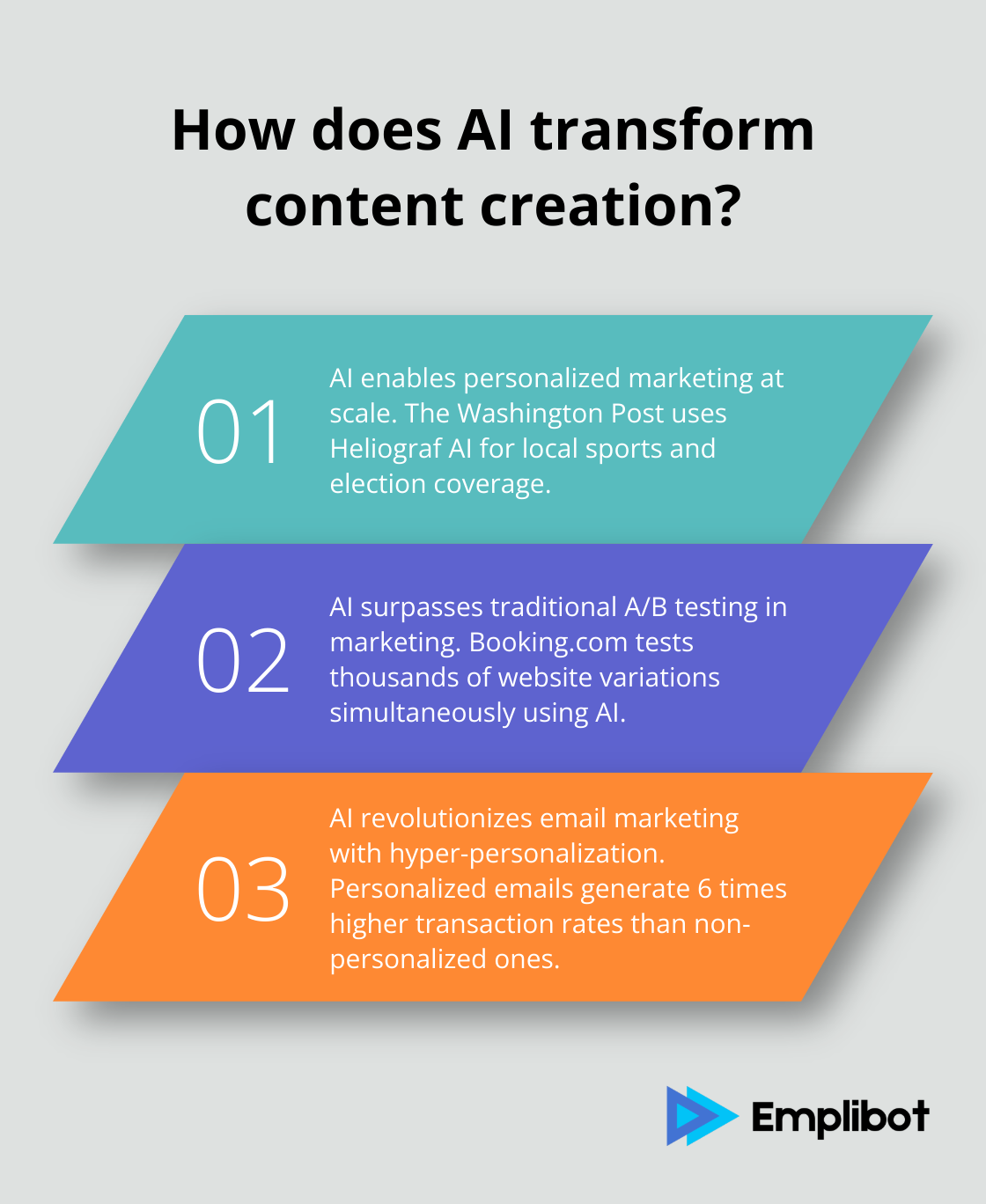
The Washington Post uses an AI system called Heliograf to generate short reports and updates for local sports and election coverage. This allows their human journalists to focus on more complex, investigative stories.
To implement AI-generated content in your marketing strategy:
- Create a robust content strategy and brand guidelines.
- Use AI tools to generate initial drafts or ideas.
- Have human editors review and refine the AI-generated content to ensure quality and brand consistency.
AI-Driven A/B Testing
AI allows marketers to try vastly more ideas in the same time frame as an A/B test and test across an entire funnel instead of a single page. This approach surpasses traditional A/B testing, which can be time-consuming and limited in scope.
Booking.com uses AI to test thousands of variations of their website simultaneously, continuously optimizing for user experience and conversion rates.
To leverage AI for A/B testing:
- Define clear goals for your tests (e.g., increasing click-through rates, conversions, or engagement).
- Use AI tools to generate multiple variations of your content or design elements.
- Implement machine learning algorithms to analyze results and make data-driven decisions quickly.
Personalizing Email Marketing
AI revolutionizes email marketing by enabling hyper-personalization at scale. Machine learning algorithms analyze subscriber data to determine the best time to send emails, optimize subject lines, and generate personalized content for each recipient.
A study by Epsilon found that personalized emails generate 6 times higher transaction rates compared to non-personalized emails.
To enhance your email marketing with AI:
- Segment your email list based on subscriber behavior, preferences, and demographics.
- Use AI tools to generate personalized subject lines and content for each segment.
- Implement predictive analytics to determine the optimal send time for each subscriber.
- Analyze performance data continuously to refine your personalization strategy.
Maintaining the Human Touch
While AI offers powerful capabilities for content creation and optimization, it’s important to maintain a human touch. AI should augment human creativity and decision-making, not replace it entirely. Try to strike a balance between AI-generated content and human-crafted messaging to ensure authenticity and brand voice consistency.
Ethical Considerations
As you implement AI in your content creation process, consider the ethical implications. Transparency about AI usage in content generation builds trust with your audience. Ensure that your AI-generated content adheres to your brand’s values and ethical standards. Regularly review and update your AI systems to prevent biases or inaccuracies in the generated content.
Final Thoughts
AI personalized marketing transforms how businesses connect with customers. Advanced technologies like machine learning and predictive analytics create highly targeted campaigns that resonate with individual preferences. This personalization enhances customer experiences and drives significant improvements in engagement, conversion rates, and marketing ROI.
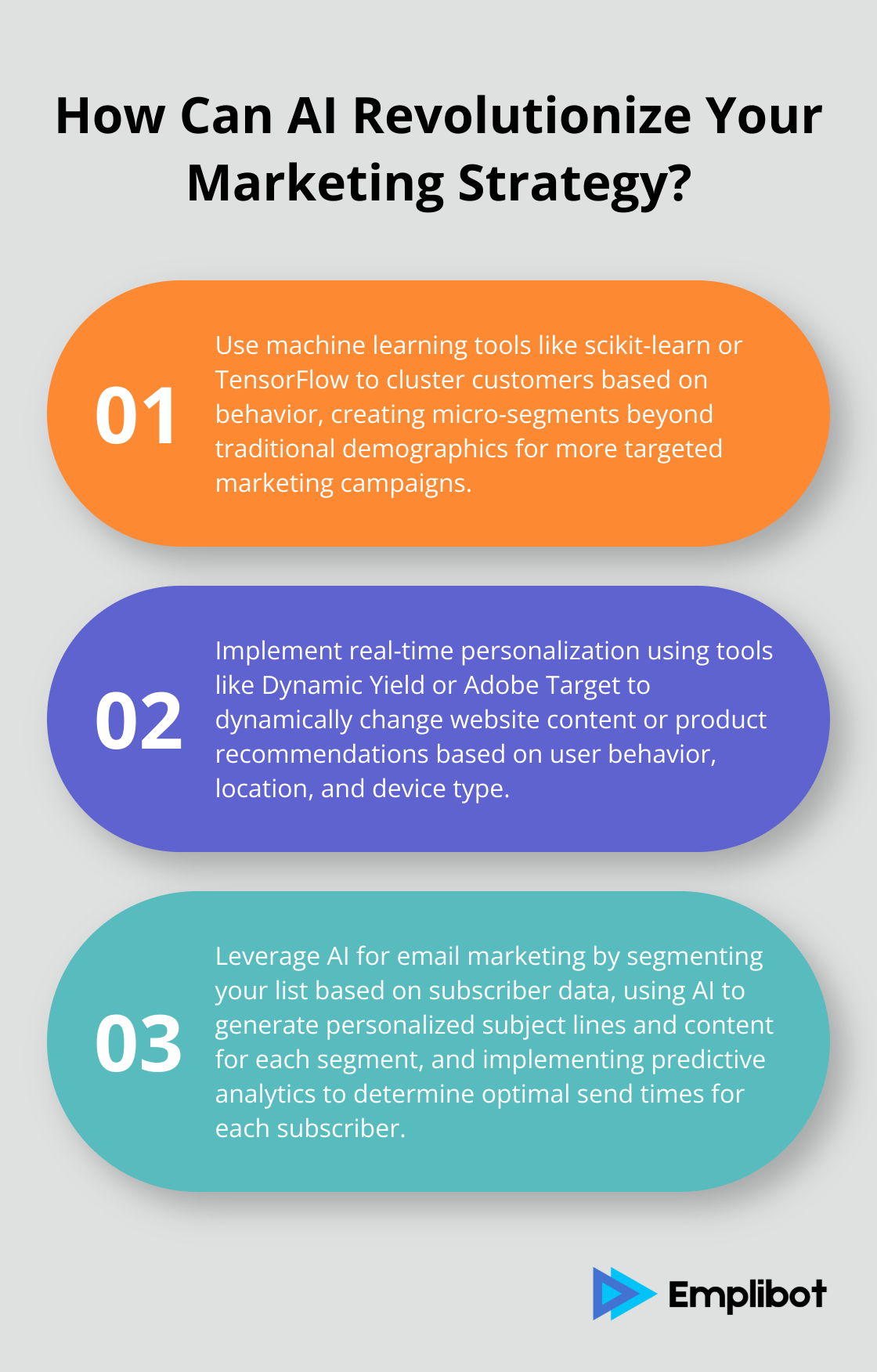
The future of AI-driven marketing strategies will see more sophisticated models that understand and predict customer intent with greater accuracy. Integration with emerging technologies will open new avenues for personalized interactions. As privacy concerns grow, AI systems will likely shift towards delivering personalization while prioritizing data protection.
Emplibot offers a comprehensive solution for businesses looking to leverage AI in their content marketing efforts. It automates processes from keyword research to content distribution, enabling businesses to deliver personalized, engaging content at scale. Companies that embrace these technologies will be well-positioned to deliver more relevant, personalized experiences to their customers.
